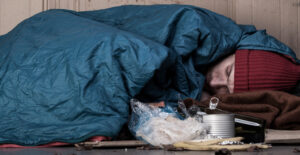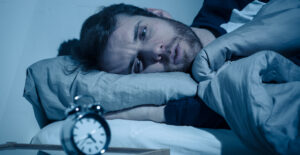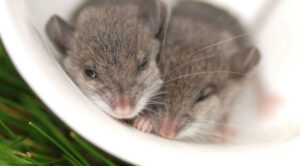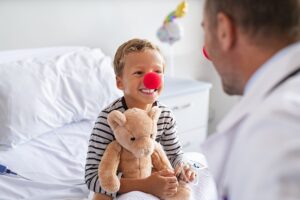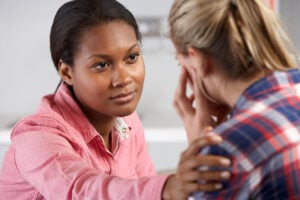Do Your Children Have Trouble Sleeping? It Could Be in Their Genes

When it comes to your child getting a good night’s sleep, there can be a lot of things working against them, including their sleep habits, health conditions, and screen time.
A new study published November 8, 2023 in The Journal of Child Psychology and Psychiatry has shown the importance of understanding how genes can also play a role in your child’s sleep.
The study looked at the relationship between sleep quality and genetics in 2,458 children born from April 2002 to January 2006. Researchers collected data on the children’s genes and questionnaires from the mothers about their children’s sleep habits at ages 18 months and 3 and 6 years. A subgroup of children ages 10-15 completed detailed questionnaires, and some tracked their sleep using actigraphy.
The scientists found that sleep issues such as insomnia can start in early childhood and extend into the teen years and potentially into adulthood. Insomnia is a sleep disorder that makes it hard to fall asleep, stay asleep, or have a restful sleep.
Kids ages 6 to 13 need an average of 9 to 12 hours of sleep a night. Toddlers need around 11 to 14 hours, including naps. They need to get enough sleep to lower the chances of mental health issues, behavioral problems, and even health conditions such as type 2 diabetes.
Past research has looked at the link between adults’ sleep issues, sleep quality, and their genetics. There’s evidence that genes play a role in how well we sleep, but this concept has yet to be studied extensively in children.

By showing that the genes that make adults more prone to insomnia also affect sleep in early childhood, researchers showed that kids who were “poor sleepers” can continue to be poor sleepers into their adult years, the study noted.
More testing is needed to understand how genes play a role in childhood sleep. However, this new research suggests how important it is for parents and healthcare providers to recognize sleep issues in kids. You can’t control your child’s genes like you can their screen time habits or what time they go to bed, but knowing that genes can affect sleep can help identify sleep disorders earlier so treatment can begin. Finding and treating sleep issues during childhood may help prevent behavioral concerns and problems in school and prevent further sleep issues into adulthood.
These study results don’t mean you necessarily have to go and get your child genetically tested. But it’s a good idea to keep an eye on their sleep habits, take steps to help them have a good bedtime routine, and talk to their doctor if there are any concerns about their sleep.
Got a hot tip? Pitch us your story idea, share your expertise with SleepFoundation.org, or let us know about your sleep experiences right here.
References
4 Sources
-
Fadzil A. (2021). Factors Affecting the Quality of Sleep in Children. Children (Basel, Switzerland), 8(2), 122.
https://pubmed.ncbi.nlm.nih.gov/33572155/ -
Kocevska, D., Trajanoska, K., Mulder, R. H., Koopman-Verhoeff, M. E., Luik, A. I., Tiemeier, H., & van Someren, E. J. W. (2023). Are some children genetically predisposed to poor sleep? A polygenic risk study in the general population. Journal of child psychology and psychiatry.
https://pubmed.ncbi.nlm.nih.gov/37936537/ -
Centers for Disease Control and Prevention. (2021). Do Your Children Get Enough Sleep?, Retrieved November 13, 2023 from
https://www.cdc.gov/chronicdisease/resources/infographic/children-sleep.htm -
Shi, G., Xing, L., Wu, D., Bhattacharyya, B. J., Jones, C. R., McMahon, T., Chong, S. Y. C., Chen, J. A., Coppola, G., Geschwind, D., Krystal, A., Ptáček, L. J., & Fu, Y. H. (2019). A Rare Mutation of β1-Adrenergic Receptor Affects Sleep/Wake Behaviors. Neuron.
https://pubmed.ncbi.nlm.nih.gov/31473062/
















